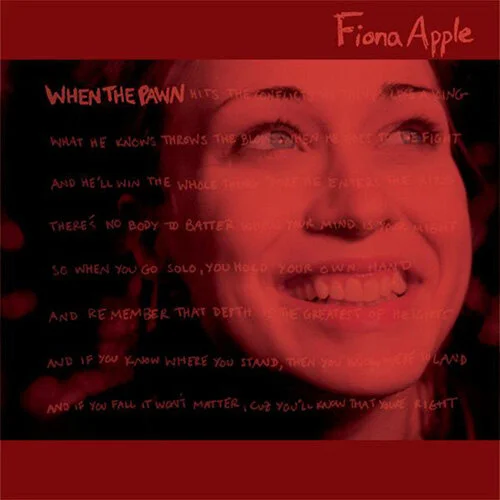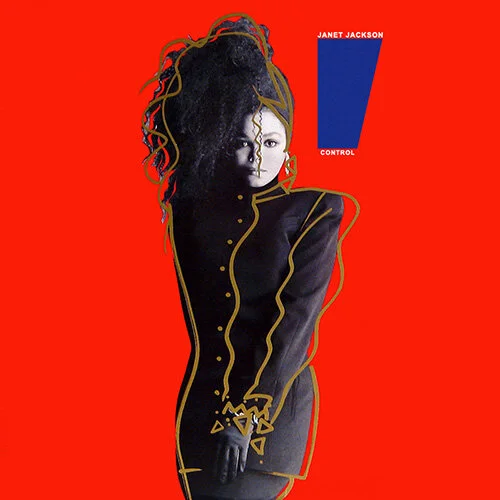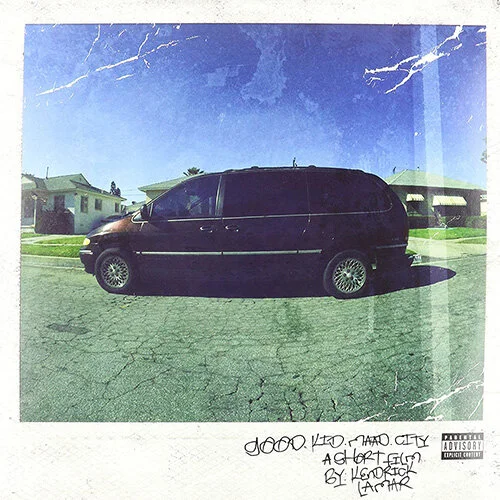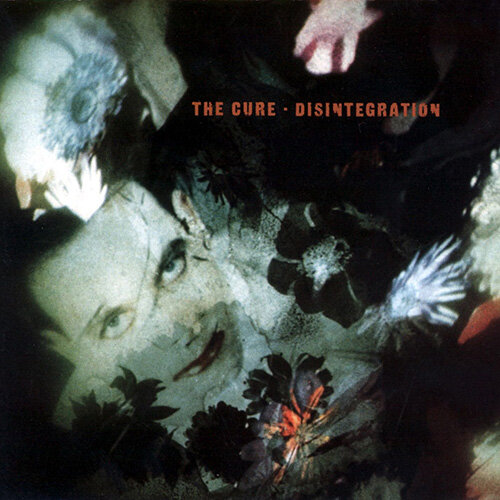#101 Led Zeppelin, 'Led Zeppelin' (1969)
The debut album by the mighty Led Zeppelin; a record that was the start of so much. Astoundingly, this collection of songs was recorded in just 36 hours and cost £1,782 to make. It was funded by Jimmy Page, who also produced it, and the band’s manager, Peter Grant. With this record, Zeppelin didn’t invent Hard Rock, but they perfected it. They fused Blues, Folk and Rock, writing 5 of the 9 songs, with the remaining being interpretations and their own reworkings of classic Blues and Folk songs.
#102 The Clash, 'The Clash' (1977)
The self-titled debut album by The Clash is a short fast loud affair of 14 songs clocking in at a mere 35 minutes, with only a small handful of tracks exceeding two and a half minutes long. The album that would go on to be seminal in punk rock was written and recorded over the course of three weeks and cost £4,000 to make. Most of it was conceived in a council flat in London, where Mick Jones lived with his grandmother. His grandmother was an early supporter of the band and would often attend their live shows. The thought of a little old Jewish Grandmother at a punk gig fills me with so much joy. In fact, all of the above is just the epitome of Punk.
#103 De La Soul, 'Three Feet High And Rising' (1989)
Massive jump for this one and after all these years, still a pain to listen to. Not due to its content, the album is amazing and I love it; due to the fact that De La Soul is not available on streaming. I had to listen to illegal rips on YouTube which interrupted the flow of the album with adverts. And flow is important to fully enjoy this record. De La Soul’s debut record takes its name from the Johnny Cash song of the same name (which is one of the many samples on this record). While Gangsta Rap was making its rise in the bourgeoning Hip Hop scene, De La Soul emerged with a record of upbeat positivity in stark contrast to contemporaries such as Public Enemy.
#104 The Rolling Stones, 'Sticky Fingers' (1971)
This album was the first to be released on the Stones’ own label after their deal with Decca Records lapsed. It was also the first record to fully feature Mick Taylor on guitar and the first without any contributions whatsoever from founding member, Brian Jones, who died two years before this. The album was a back to basics for the band, with Mick Taylor Jazz and Country influences being felt throughout. The band is more free on this record; not only had they left their label, but they’d also parted ways with manager, Allen Klein.
#105 The Allman Brothers, 'At Fillmore East' (1971)
This is another record that stuck with me after the last countdown. Simply put, this is my favourite live album of all time. Generally speaking, I was never a major fan of live albums. Often I found them to be poorly recorded and the crowd noise distracting. Over time, however, I’ve learned to appreciate them. Some artists are just better live, those artists that don’t thrive in a sterile studio environment. The energy of a good crowd can often be reflected by the band creating a cycle of energy. That is this album.
#106 Hole, 'Live Through This' (1994)
It’s easy and lazy to compare Courtney Love to husband, Kurt Cobain. Their music both sits in an alternative world, vocals rough and unpolished. But Love stands on her own two feet as an artist in her own right. On this record, Love sought to write more melodic music than on Hole’s debut record. Cobain and Love would push each other, musically. They were a competitive couple. The songs on this album are a departure for the band.
#107 Television, 'Marquee Moon' (1977)
This album was a major highlight for me last time around. Television’s Post-Punk debut albumwas a landmark in alternative music. The band had spent the early-to-mid-‘70s kicking around the New York music scene. Having gained a cult following and decent reputation, they were being courted by multiple major labels, including Island Records, with whom they had recorded demos produced by Brian Eno.
#108 Fiona Apple, 'When the Pawn ...' (1999)
AKA ‘When the Pawn Hits the Conflicts He Thinks Like a King What He Knows Throws the Blows When He Goes to the Fight and He'll Win the Whole Thing 'fore He Enters the Ring There's No Body to Batter When Your Mind Is Your Might So When You Go Solo, You Hold Your Own Hand and Remember That Depth Is the Greatest of Heights and If You Know Where You Stand, Then You Know Where to Land and If You Fall It Won't Matter, Cuz You'll Know That You're Right.’ You’ve gotta love Fiona Apple’s album titles.
#109 Lou Reed, 'Transformer' (1972)
Loud Reed left the Velvet Underground in 1970. Disillusioned with New York, he went to London, where he signed with RCA. He released his debut album, which was a complete flop. With his second album, he decided to take a chance on a couple of producers, one of whom had never producer a record before, and the other that had only produced his own music and one other artist. The producers in question, Mick Ronson and David Bowie. Bowie was a massive fan of Reed, having been majorly influenced by the Velvet Underground. It was a full circle moment for both Reed and Bowie.
#110 Joni Mitchell, 'Court and Spark' (1974)
‘Court and Spark’ was the most successful record of Mitchell’s career, her only #1, in fact, and it’s easy to see why; this album is so straight forward and easy to listen to in comparison to her other records. Not saying that she’s not easy to listen to in general, but albums like ‘The Hissing Of Summer Lawns’ (#258) and ‘Hejira’ (#133) are a bit more abstract, bearing a heavy Jazz influence, whereas this album is straight forward folk pop.
#111 Janet Jackson, 'Control' (1986)
Amazingly, this album wasn’t included last time, this time it’s beaten out the other two entries that were. ‘Control,’ Janet Jackson’s third record, was the one that broke her commercially. Her previous record, 1984’s ‘Dream Street,’ was a flop charting at #147. Subsequently, Jackson fired her manager, aka her father, Joseph Jackson, finding him too controlling. The 19-year-old Jackson, wanted to break free of her father, leave the house and take control. In a fit of rebelliousness, she had briefly married James DeBarge in late 1984 but left him 4 months later, to be annulled later that year.
#112 Elton John, 'Goodbye Yellow Brick Road' (1973)
This album holds the esteemed honour of featuring one of my favourite album openers of all-time, the incredible ‘Funeral For A Friend / Love Lies Bleeding.’ It’s such a brilliant and unexpected 11-minute build up. Originally the two songs were written as two separate pieces, not intended to be tacked together. The first half of the song is the music that John imagined he’d like to be played at his funeral. The instrumental piece sums up his personality perfectly in music; unpredictable, bombastic, gentle and grandiose. Bernie Taupin reportedly wrote the lyrics for the double album in two and a half weeks with the prolific Elton John composing the music in three days. Two and a half weeks and three days to write songs such as ‘Candle In The Wind,’ ‘Bennie and the Jets,’ ‘Goodbye Yellow Brick Road,’ and ‘Saturday Night’s Alright (For Fighting).’ Astounding, really.
#113 The Smiths, 'The Queen Is Dead' (1986)
“To die by your side/Is such a heavenly way to die.” How can such a miserable git like Morrissey write such beautiful lyrics? Those lyrics are taken from ‘There Is A Light That Never Goes Out,’ the second last track on ‘The Queen Is Dead,’the brilliant third album by Manchester’s The Smiths. Two quite different musicians, Morrissey and Johnny Marr were a match made in Indie Rock heaven with Morrissey’s poetic lyrics over Morrissey’s jangly guitars.
#114 The Strokes, 'Is This It' (2001)
Leading the pack of “The” bands in the early 2000s, The Strokes burst onto the music scene catapulting indie music into the mainstream. Vocalist and songwriter, Julian Casablancas (with a name like that he was destined for stardom), met guitarist, Albert Hammond Jr. at boarding school in Switzerland. The two bonded over music but lost contact when Casablancas moved back to NYC. Upon his return, he would connect with guitarist Nick Valensi and drummer Fab Moretti at school in Manhattan. Years later, he reconnected with Hammond Jr. who would be invited to join the group that would become The Strokes.
#115 Kendrick Lamar, 'good kid, m.A.A.d city' (2012)
Lamar’s second album and major label debut, ‘good kid, m.A.A.d city,’ was my first exposure to the artist. At the time he didn’t quite grab me like he would on his defining follow up record. But that’s the great thing about recorded music, it’s always there for you to go back and rediscover. The album is a concept record chronicling Lamar’s teenage experiences on the streets of Compton; gang infested and drug riddled.
#116 The Cure, 'Disintegration' (1989)
The Cure had spent most of the ‘80s enjoying massive success. They had progressively lost their Goth Rock edge and moved more towards a Pop sound. Vocalist and bad leader, Robert Smith, had become disenfranchised with the band’s sound. His impending 30th birthday also contributed to his depression as he felt that he hadn’t recorded his greatest work yet. To cope with his depression he started regularly taking LSD and ultimately moved back towards the Goth Rock sound his band had become known for.
#117 Kanye West, 'Late Registration' (2005)
The lyrics on this record explore poverty, drug trafficking, racism, healthcare and the blood diamond trade. West collaborated with film composer, Jon Brion on the production. As usual, the record is packed with samples, but most notably Curtis Mayfield’s ‘Move On Up’ on ‘Touch The Sky,’ Shirley Bassey’s ‘Diamonds Are Forever’ on ‘Diamonds From Sierra Leone’ and Ray Charles’s ‘I Got A Woman’ on ‘Gold Digger,’ which actually opens with Jamie Foxx’s Oscar-winning impersonation of Charles (side note, West got the idea when he went to see ‘Ray’ with friend, John Mayer.)
#118 The Eagles, 'Hotel California' (1976)
Exit Bernie Leadon, enter Joe Walsh. If Bernie Leadon was the member that brought the Country sound to The Eagles, Joe Walsh was the member that brought the big, dirty riffs. Walsh had enjoyed a successful career with James Gang, as well as a solo career after leaving that band. His presence within the band was immediately felt, giving a new lease on life to The Eagles on this, their fifth record. Co-band leader, Glenn Frey took a backseat vocally, on this album, singing lead vocals on just one of the nine tracks, although he did co-write seven of them. His vocal harmonies are all over the record too. But this record belongs to Don Henley.
#119 Sly and the Family Stone, 'Stand!' (1969)
I’ve already listened to 50% of the songs on this record previously in the challenge due to their inclusion on the ‘Greatest Hits’ that was included (#343). That’s the thing, why include Greatest Hits compilations when the artists have multiple records included. Released in May 1969, the album was the band’s most commercially successful record of their career, punctuated by an iconic performance at Woodstock. In 1969 alone, they sold half a million copies, and to date have reached over 3 million sales.
#120 Van Morrison, 'Moondance' (1970)
Following the commercial failure of ‘Astral Weeks,’ Van Morrison and his wife moved to upstate New York, close to Woodstock, and close to Bob Dylan’s home, an artist he greatly admire. According to Morrison’s wife, "Van fully intended to become Dylan's best friend." Sadly for Van, though, Dylan moved out of town just before he arrived. Morrison spent most of 1969 writing this album, which was more structured, less acoustic and featured more a punchy band sound than his previous record, include the punch of horns on various songs.



















